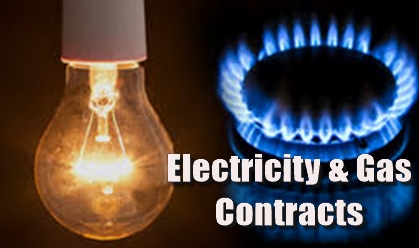In all probability, unless you are in a rural location without access to the gas mains, your pub will consume vast amounts of natural gas and electricity. So getting your supply contract for both of these services right is an essential tool in controlling your costs and increasing your pub’s profitability. The first step to reducing your pub’s gas and electricity bills is to make sure you’ve got the best contract, but also the best tariff for your business.
At the start of 2008, the body that regulates the business energy industry – OFGEM – produced a series of ‘Nine Key Questions’ a small business owner should ask suppliers or brokers when looking for the cheapest business energy tariffs.
With over 11,000 different tariffs in the UK energy market OFGEM decided that some guidance was needed to help energy customers make their energy contract decisions. Even if you use an energy broker you need to understand what they are talking about and more importantly make sure they have taken everything into consideration.
The questions were designed to prevent business owners from falling into unethical traps set by commercial energy suppliers and greedy brokers who act in their own interests, rather than their clients.
Just reading the questions gives you an idea of how complex business energy contracts can be and why so many businesses unwittingly fall foul of them. However, they were only intended as a stop-gap while OFGEM got on with the job of tackling the root causes of the problems.
With all the major energy suppliers announcing eye-watering increases this year they are just as relevant today as they ever have been.
So what do I need to ask?
So – if you missed them the first time round – here they are again, along with notes to help you understand why the questions still need asking:
1. What is the charge per unit? Are there any fixed or standing charges? For electricity, are there any capacity charges per KVA?
The unit charge – measured in kilowatt hours (kWh) – is the most important variable when comparing business electricity or business gas prices. They differ from one supplier to the next, with cheap business electricity prices ranging from as low as 7p for new customers to those on out-of-contract or “deemed rates” as high as 30p.
Standing charges are applied to most business energy contracts, the rates given in either ‘per day’, ‘per month’ or ‘per quarter’ depending on which company is quoting for supply. A good rule of thumb is 15p/day for electricity and 9p/day for business gas.
Capacity charges are additional charges that only apply to high consumers and the average pub is unlikely to fall into that category.
Reactive Charges mean you’ll be liable for further charges if you exceed your agreed consumption limits.
2. Can the price I pay for energy change during the life of the contract? If so, how will you tell me about this or any other changes to the contract? Are charges fixed or variable? If they are fixed, how long for? If they are variable, which parts may vary?
This question is to warn you that some suppliers or brokers may encourage you to accept a variable, rather than a fixed, rate. Volatile wholesale prices mean that variable rates can be unpredictable and you will have no control over how much your supplier wants to charge you in future. My advice is to always choose a fixed price, fixed term contract, your or your broker may differ in opinion.
3. What happens at the end of my contract or the fixed-term period if I stay with you as my supplier? What can happen at the end of my contract or the fixed-term period if I do not renew my contract? What do I need to do if I do not wish to renew my contract?
If you remain with an existing supplier your commercial electricity contract will be automatically renewed (not necessarily at your original rate but at a, new, usually higher rate) and you’ll be stuck in that contract for another fixed term of a year or more.
If you decide to end a supply contract you will have to give sufficient notice which can be as much as 120 days before your contract end date, you need to check this before you sign up. If you serve notice but do not switch to another supplier, you will be put on to the higher out-of-contract rates mentioned earlier.
Continue reading … page 2
